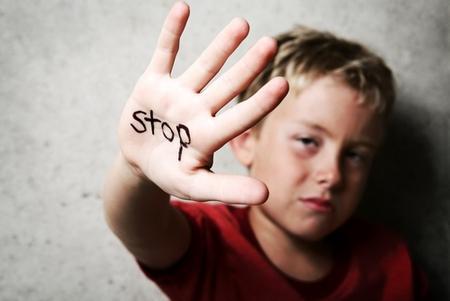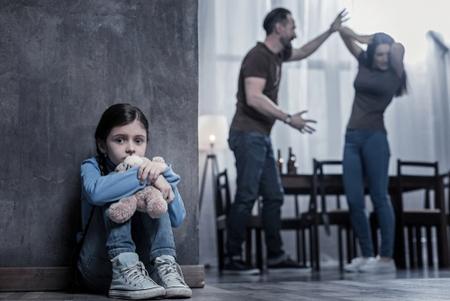630-462-9500
After Hour New Client Telephone Number 630-690-6077
1776 S. Naperville Road, Building B, Suite 202,
Wheaton, IL 60189
Recent Blog Posts
Why a Prenuptial Agreement May be the Right Choice
 When couples are getting ready to tie the knot, they are usually in the midst of a deep love that seems like it could never end. While you should always believe that your marriage will last a lifetime, it is sometimes wise to prepare for the possibility of a separation, down the road. Of course, facing the potentiality of a divorce with your fiance can be difficult, but by planning ahead and signing a prenuptial agreement, you can help ensure that your family will maintain a financially healthy future, even if your marriage ends in a divorce. If you are readying for a marriage, speak with a legal representative to discuss the benefits of developing a prenuptial agreement, prior to your wedding.
When couples are getting ready to tie the knot, they are usually in the midst of a deep love that seems like it could never end. While you should always believe that your marriage will last a lifetime, it is sometimes wise to prepare for the possibility of a separation, down the road. Of course, facing the potentiality of a divorce with your fiance can be difficult, but by planning ahead and signing a prenuptial agreement, you can help ensure that your family will maintain a financially healthy future, even if your marriage ends in a divorce. If you are readying for a marriage, speak with a legal representative to discuss the benefits of developing a prenuptial agreement, prior to your wedding.
Who Should Look Into a Prenuptial Agreement?
A prenuptial agreement is an agreement that is made by potential spouses, prior to their marriage. It is designed to establish how the couple will handle the allocation of resources, distribution of debt, and other financial issues, in the event of a divorce. A prenuptial agreement is officially established once the marriage is finalized. While many people believe that the establishment of a prenuptial agreement is unromantic or pessimistic, there are many scenarios in which a prenuptial agreement can alleviate stress and help the couple avoid future disputes, down the road.
The Impact of Sole-Custody Parenting on a Child
 When raising children, parents make a conscious decision to put the needs of their child before their own. Raising children can be nerve-wracking, stressful, and challenging, so it can be helpful to have a solid parenting team. Unfortunately, in the aftermath of a divorce, the parenting unit of father and mother is severely altered. When deciding how to approach your child custody case, it is important to know the benefits of various types of parenting plans. If you believe that sole-custody parenting is the best option for you and your family, you should fully understand the benefits and potential drawbacks.
When raising children, parents make a conscious decision to put the needs of their child before their own. Raising children can be nerve-wracking, stressful, and challenging, so it can be helpful to have a solid parenting team. Unfortunately, in the aftermath of a divorce, the parenting unit of father and mother is severely altered. When deciding how to approach your child custody case, it is important to know the benefits of various types of parenting plans. If you believe that sole-custody parenting is the best option for you and your family, you should fully understand the benefits and potential drawbacks.
The Benefits of Sole-Custody Parenting
A sole-custody parenting plan is, in some cases, the best option for a parent and their children. Sole-custody parenting can enable a child to maintain a certain level of consistency in their academic schedule, extra-curricular activities, and living situation. If you and your former spouse no longer have a relationship that can work as a functioning parenting team, it is likely the best option for one parent to be awarded sole custody. In cases of domestic abuse, a sole-custody parenting plan is almost always the best option.
Why You Should Avoid Social Media During Your Divorce
 Over 80% percent of Americans use one social media platform or another. In all, an estimated 264 million people in the U.S. are active on social media at any given moment. Most people are well aware of the potential ramifications of irresponsible social media posts from an employment perspective, but few understand how social media could negatively impact a divorce case. Sadly, one of the most common mistakes a person can make during a divorce is posting on social media. If you are contemplating a divorce, it is wise to take a step back from all of your social media platforms, especially when dealing with any of the following Illinois divorce issues.
Over 80% percent of Americans use one social media platform or another. In all, an estimated 264 million people in the U.S. are active on social media at any given moment. Most people are well aware of the potential ramifications of irresponsible social media posts from an employment perspective, but few understand how social media could negatively impact a divorce case. Sadly, one of the most common mistakes a person can make during a divorce is posting on social media. If you are contemplating a divorce, it is wise to take a step back from all of your social media platforms, especially when dealing with any of the following Illinois divorce issues.
Social Media and Child Custody
Social media platforms can be a fantastic opportunity to update old friends on your life and establish new relationships. Yet, it is important to understand how a social media post could impact your child custody case. If you post false information about your marital status or familial situation during your divorce, it could severely impact a child custody case.
Obtaining a Restraining Order in Illinois
 According to the National Coalition Against Domestic Violence (NCADV), approximately 10 million Americans are abused by an intimate partner each year. In all, 20 Americans experience domestic abuse every single minute, across the United States. Domestic abuse is one of the most physically dangerous and emotional traumatizing crimes to be a victim of. In many cases, victims are afraid to leave, do not want to alert authorities, and may still have an emotional connection to their abuser. In other situations, children are involved, and that can lead to increased complications and concerns.
According to the National Coalition Against Domestic Violence (NCADV), approximately 10 million Americans are abused by an intimate partner each year. In all, 20 Americans experience domestic abuse every single minute, across the United States. Domestic abuse is one of the most physically dangerous and emotional traumatizing crimes to be a victim of. In many cases, victims are afraid to leave, do not want to alert authorities, and may still have an emotional connection to their abuser. In other situations, children are involved, and that can lead to increased complications and concerns.
Still, domestic violence can escalate quickly, and removing you and your family from a violent situation is the most important step you can take in ensuring your safety. If you or a loved one are facing domestic violence at home, contact law enforcement officials immediately and reach out to a team of legal representatives you can trust.
What You Need to Know Before Adopting
 For thousands of American couples, adoption offers the opportunity to complete their family unit. Adoption represents a beautiful decision for a couple looking for a child, and a child in need of loving parents. According to studies conducted by the National Survey of Adoptive Parents (NSAP), more than 600,000 children in foster homes throughout the United States are adopted by permanent custody parents each year. Making the decision to adopt represents a truly life-changing decision for all parties involved. If you and your family, are contemplating adopting, it may be time to contact a family law attorney to assist you with some of the complex legal proceedings involved in every adoption.
For thousands of American couples, adoption offers the opportunity to complete their family unit. Adoption represents a beautiful decision for a couple looking for a child, and a child in need of loving parents. According to studies conducted by the National Survey of Adoptive Parents (NSAP), more than 600,000 children in foster homes throughout the United States are adopted by permanent custody parents each year. Making the decision to adopt represents a truly life-changing decision for all parties involved. If you and your family, are contemplating adopting, it may be time to contact a family law attorney to assist you with some of the complex legal proceedings involved in every adoption.
Common Adoption Misconceptions
When making the decision to adopt, prospective parents are posed with a number of important questions, but they may also be presented with common misconceptions about adoption.
My Adopted Child Won't Love Me: When contemplating adoption, many parents wonder whether or not their adopted child will love them as if they were their birth parents. This notion is a common adoption misconception; in all reality, the vast majority of adopted children have a wonderful relationship with their adopted parents. In fact, according to the NSAP, approximately 90% of children over age 5 have positive feelings about their adoption. Children simply need a home and loving parents.
When Mediation Can Be The Right Choice For You
 In many divorce cases, one spouse elects to pursue a divorce based on the poor decisions of the other spouse. Some of the most common reasons for divorce include one spouse having an affair, one spouse recklessly spending money, or one spouse no longer carrying their weight as a parent. Still, in some divorces, both parties believe that separation is the best option for all parties involved. In these cases, a settlement may not be necessary, and a mediation may be the right choice for you and your former spouse.
In many divorce cases, one spouse elects to pursue a divorce based on the poor decisions of the other spouse. Some of the most common reasons for divorce include one spouse having an affair, one spouse recklessly spending money, or one spouse no longer carrying their weight as a parent. Still, in some divorces, both parties believe that separation is the best option for all parties involved. In these cases, a settlement may not be necessary, and a mediation may be the right choice for you and your former spouse.
What is a Mediation?
Mediation is the process in which you and your former-spouse meet with a neutral third-party and work to resolve the biggest issues holding up the finalization of the divorce process. Those most commonly discussed during a mediation include custodial responsibilities, child support payments, allocation of retirement finances, and distribution of property. A mediation is conducted outside the standard court process. When a divorce case is taken to court, in many cases, neither party walks away with what they wanted. A mediation represents a process in which neither party needs to agree until they absolutely want to.
Why The Divorce Rate Is Dropping Among Millennials
 A recent study conducted by a University of Maryland sociology professor, using data from the United States Census Bureau, found that divorce rates have been dropping steadily since 2008. In fact, in the eight-year period between 2008 and 2016, divorce rates have dropped an incredible 18%, nationwide. Yet, in all reality, the declining divorce rate has more to do with a smaller married population than an increase in healthier marriages. It is important to remember that removing yourself from an unhealthy marriage is almost always the best option for you and your family.
A recent study conducted by a University of Maryland sociology professor, using data from the United States Census Bureau, found that divorce rates have been dropping steadily since 2008. In fact, in the eight-year period between 2008 and 2016, divorce rates have dropped an incredible 18%, nationwide. Yet, in all reality, the declining divorce rate has more to do with a smaller married population than an increase in healthier marriages. It is important to remember that removing yourself from an unhealthy marriage is almost always the best option for you and your family.
Millennials Are Not Marrying Young
Today's young adult population has seemingly learned from the mistakes of their elders. Millennials are overwhelmingly electing to wait to get married until they are older, a decision that is directly leading to a declining divorce rate nationwide. In past generations, like the “Baby Boomers”, many American couples would marry at a young age, have children, get divorced, and remarry. Millennials, it seems, are less inclined to marry before they are absolutely ready to do so.
How To Successfully Parent When Joint-Custody Parenting
 Thousands of American couples divorce each year - but that is not necessarily a bad thing. Divorces can offer disgruntled spouses a new opportunity to find love and excitement in their lives. Yet for parents, getting a divorce can come with major complications. Separating parents are posed with hard-hitting questions like: Where will our children live? Will I still get to see my kids? How will this impact our children's development?
Thousands of American couples divorce each year - but that is not necessarily a bad thing. Divorces can offer disgruntled spouses a new opportunity to find love and excitement in their lives. Yet for parents, getting a divorce can come with major complications. Separating parents are posed with hard-hitting questions like: Where will our children live? Will I still get to see my kids? How will this impact our children's development?
In many cases, the easiest solution to all these questions comes in the form of a joint-custody parenting agreement. A joint-custody parenting agreement is defined as a court order in which parenting responsibility is given to both parties, and both parents are named custodial parents. If you believe that a divorce is the best option for you and your family, it may be time to contact a knowledgeable team of divorce lawyers.
Simple Tips to Successful Joint-Custody Parenting
Recognizing Signs of Abusive Parenting
 When considering a divorce, children are often at the forefront of the discussion. Sadly, there are hundreds of couples who elect to stay in unhealthy relationships as a means of ensuring their children have a home with both spouses, but what happens when you disagree with the parenting tactics of your spouse? More importantly, what should you do if your spouse is parenting your children in an abusive manner?
When considering a divorce, children are often at the forefront of the discussion. Sadly, there are hundreds of couples who elect to stay in unhealthy relationships as a means of ensuring their children have a home with both spouses, but what happens when you disagree with the parenting tactics of your spouse? More importantly, what should you do if your spouse is parenting your children in an abusive manner?
Child abuse can cause irreparable harm to a child's mental psyche and emotional development. If you believe your child is being abused by your spouse, it is time to contact law enforcement officials and seek out legal guidance.
Different Types of Abusive Parenting
While most people assume that child abuse can only come through the form of physical violence, abusive parenting is not limited to physical harm. Verbal abuse, such as belittling and violent yelling, can also result in childhood trauma.
Helping a Loved One Get Out of an Abusive Relationship
 Every single year, approximately 10 million Americans face some form of domestic abuse. Domestic abuse can come in the form of physical violence, emotional abuse, and sexual misconduct, but regardless of the form, the abused party needs to remove themselves from the situation. When speaking with a loved one or a friend that is in an abusive relationship, it is important to know what to say, and how to say it. Domestic abuse continues to be a tragically prominent issue here in the United States, as 1 in 7 American women have been abused by a partner. If you or a loved one is in the midst of an abusive relationship, contact law enforcement officials as soon as possible, and meet with a legal professional that can help you move away from the dangerous situation.
Every single year, approximately 10 million Americans face some form of domestic abuse. Domestic abuse can come in the form of physical violence, emotional abuse, and sexual misconduct, but regardless of the form, the abused party needs to remove themselves from the situation. When speaking with a loved one or a friend that is in an abusive relationship, it is important to know what to say, and how to say it. Domestic abuse continues to be a tragically prominent issue here in the United States, as 1 in 7 American women have been abused by a partner. If you or a loved one is in the midst of an abusive relationship, contact law enforcement officials as soon as possible, and meet with a legal professional that can help you move away from the dangerous situation.
What To Say To a Domestic Abuse Victim
As a friend or a family member of a domestic abuse victim, you have a responsibility to help your loved one remove themselves from the situation. Knowing what to say through these difficult conversations can make all the difference in ensuring that your loved one can safely escape the dangerous relationship.




















